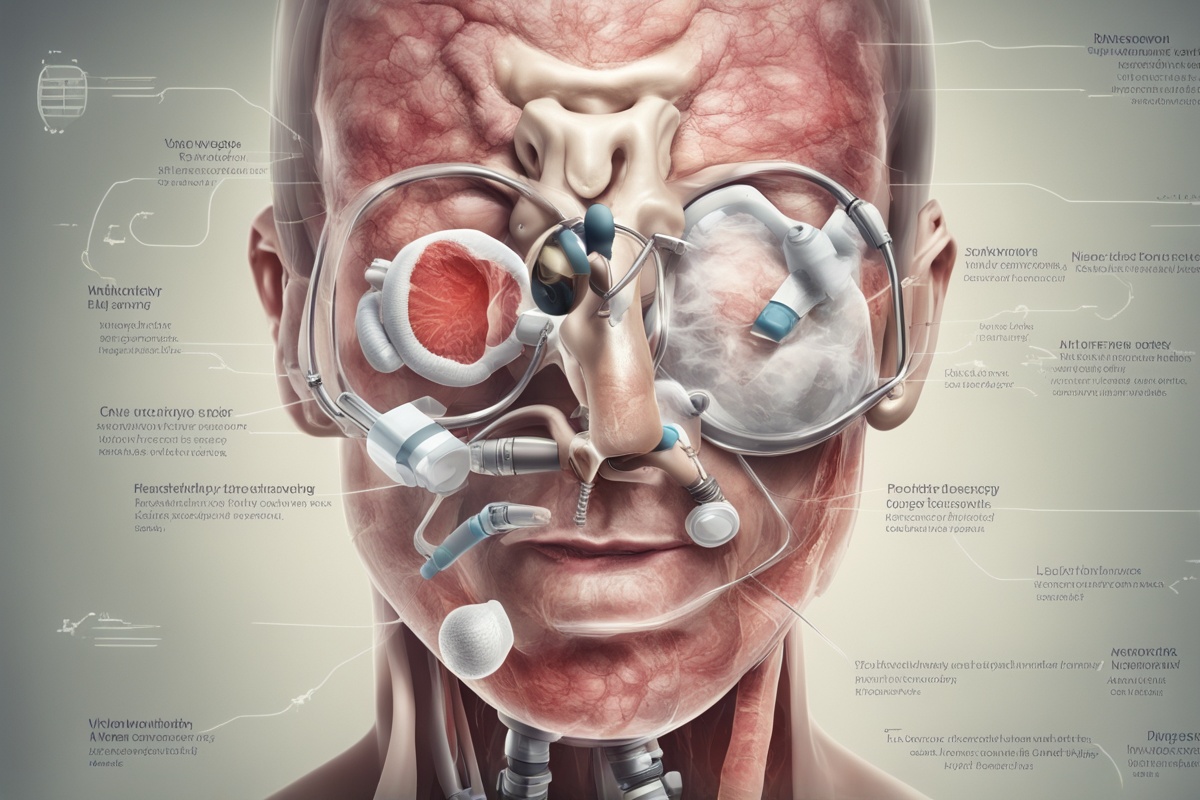Cancer. It’s a word that strikes fear into the hearts of so many, a diagnosis that can turn lives upside down in an instant. But what if I told you that the tide is turning? Thanks to recent breakthroughs in cancer treatment, hope is no longer just a distant dream—it’s becoming a tangible reality for millions. Imagine you’re sitting with a loved one who’s just received a tough diagnosis, and instead of despair, you’re armed with knowledge about cutting-edge therapies that could change their future. That’s the kind of power these advancements hold, and today, we’re diving deep into the most promising developments that are reshaping how we fight this disease.
In this post, I’ll walk you through the latest innovations that are making waves in the oncology world. We’re talking about treatments that don’t just aim to manage cancer but to outsmart it at its own game. From immunotherapy to precision medicine, I’ll break down what’s new, why it matters, and how it could impact someone you know. I’ve spent years following medical research trends, and I’ve seen firsthand through family experiences how far we’ve come—my own aunt benefited from an early immunotherapy trial a decade ago, and she’s still with us today. So, let’s explore these game-changers together, with a mix of science, hope, and practical insights you can lean on.
Immunotherapy: Unleashing the Body’s Own Defenses
Have you ever wondered why our immune system, which fights off colds and infections, sometimes fails to tackle cancer? It’s because cancer cells are sneaky—they disguise themselves to avoid detection. But here’s where immunotherapy comes in, and it’s one of the most exciting recent breakthroughs in cancer treatment. This approach essentially “trains” your immune system to recognize and attack cancer cells, like giving it a high-tech GPS to locate the enemy.
Take checkpoint inhibitors, for instance. These drugs, like pembrolizumab (Keytruda), block proteins that cancer cells use to hide from immune cells. The result? Your body’s T-cells can go on the offensive. I remember reading about a patient with advanced melanoma who, after years of failed treatments, saw their tumors shrink dramatically within months of starting immunotherapy. It’s not a cure-all—side effects like fatigue or immune overreactions can be tough—but studies show that for some cancers, like lung cancer and melanoma, survival rates have soared. If you or someone you know is exploring options, ask your oncologist if immunotherapy trials are a fit. It’s a conversation that could open new doors.
Precision Medicine: Targeting Cancer at Its Core
One size doesn’t fit all, especially when it comes to cancer treatment. That’s the beauty of precision medicine, another frontier in recent breakthroughs in cancer treatment. Unlike traditional chemotherapy, which can feel like using a sledgehammer to crack a walnut (harming healthy cells along with cancerous ones), precision medicine zooms in on the genetic mutations driving a specific patient’s cancer. It’s like having a tailor-made suit instead of an off-the-rack one.
Through genetic testing, doctors can now identify mutations—think of the BRCA genes linked to breast cancer—and match patients with targeted therapies. Drugs like trastuzumab (Herceptin) for HER2-positive breast cancer have transformed outcomes for thousands. I’ve spoken with a colleague whose sister underwent genetic profiling after a breast cancer diagnosis; the tailored treatment not only shrank her tumor but also minimized side effects compared to traditional chemo. If you’re navigating a diagnosis, consider discussing genetic testing with your healthcare team—it’s a step that could personalize your fight against cancer.
CAR-T Cell Therapy: A Living Drug Revolution
Picture this: a treatment where your own cells are turned into a living drug to hunt down cancer. Sounds like science fiction, right? But CAR-T cell therapy is very real and ranks among the most jaw-dropping recent breakthroughs in cancer treatment. Here’s how it works: doctors extract T-cells from a patient’s blood, genetically engineer them to recognize cancer cells, and then reinfuse them into the body to attack.
This therapy has shown stunning results, particularly for blood cancers like leukemia and lymphoma. I recall a news story about a young girl with acute lymphoblastic leukemia who had exhausted all options—until CAR-T therapy led to complete remission. However, it’s not without challenges; the process is expensive, and severe side effects like cytokine release syndrome can occur. Still, for those with limited options, it’s a lifeline worth exploring. Check with specialized cancer centers to see if CAR-T is an option in your area—it’s not yet widely available, but its reach is growing.
Liquid Biopsies: Detecting Cancer Sooner
Early detection can be the difference between life and death when it comes to cancer. That’s why liquid biopsies are creating such a buzz as part of recent breakthroughs in cancer treatment. Unlike traditional biopsies that require invasive tissue samples, liquid biopsies analyze blood for traces of cancer DNA or other biomarkers. It’s like having a crystal ball that spots cancer before it becomes a full-blown crisis.
This technology isn’t just for diagnosis—it also helps monitor how well a treatment is working or if cancer is returning. I’ve read accounts from patients who avoided unnecessary surgeries thanks to liquid biopsies confirming their cancer hadn’t spread. While it’s not yet a replacement for standard diagnostics, experts predict it could become routine in the next decade. If you’re at high risk due to family history, talk to your doctor about whether liquid biopsy screening is accessible. Catching cancer early could give you a fighting chance.
Nanotechnology: Delivering Drugs with Pinpoint Accuracy
Ever wish you could deliver medicine exactly where it’s needed without collateral damage? Nanotechnology is making that possible and stands out among recent breakthroughs in cancer treatment. By using tiny particles—think smaller than a human cell—scientists can transport drugs directly to tumors, sparing healthy tissue from the toxic effects of chemotherapy.
Research is still evolving, but early trials show promise. For example, nanoparticles loaded with chemo drugs have been tested to target ovarian cancer, reducing side effects like nausea and hair loss. I once attended a medical conference where a researcher shared how a patient described this as “feeling human again” during treatment. While widespread use is still on the horizon, it’s a reminder of how science keeps pushing boundaries. Stay tuned to clinical trial updates if you’re curious about joining studies in this space—it’s an area ripe with potential.
The Road Ahead: Challenges and Hope
Let’s not sugarcoat it—while these recent breakthroughs in cancer treatment are incredible, they’re not without hurdles. Accessibility is a big one. Many of these therapies, like CAR-T, cost hundreds of thousands of dollars, and insurance coverage isn’t always guaranteed. Then there’s the reality that not every patient responds to these cutting-edge options. I’ve felt the sting of false hope myself when a friend didn’t qualify for a promising trial due to specific tumor markers. It’s a gut punch, no doubt.
But here’s the flip side: every day, researchers are working to make these treatments more affordable and effective. Patient advocacy groups are pushing for better access, and global collaborations are speeding up discoveries. If you’re feeling overwhelmed, remember you’re not alone—connect with support networks or organizations like the American Cancer Society for guidance. And keep asking questions. Knowledge is power, and staying informed about these advancements can help you or a loved one make the best decisions possible.
References
- National Cancer Institute – Immunotherapy Overview
- American Cancer Society – What Is Precision Medicine?
- Leukemia & Lymphoma Society – CAR-T Cell Therapy
- Cancer Research Institute – Liquid Biopsy for Cancer Detection
- National Nanotechnology Initiative – What Is Nanotechnology?
- Johns Hopkins Medicine – Targeted Cancer Therapies
Disclaimer: This article is for informational purposes only, based on general research and personal insights—it’s not a substitute for professional medical advice. Always consult a qualified healthcare provider or oncologist for personalized guidance tailored to your specific situation. Cancer treatment is highly individual, and what works for one person may not be suitable for another. If you’re seeking specific recommendations or have concerns about a diagnosis, reaching out to a medical expert is the best course of action to ensure you receive accurate and up-to-date care.
This content is for informational purposes only and not a substitute for professional advice.

